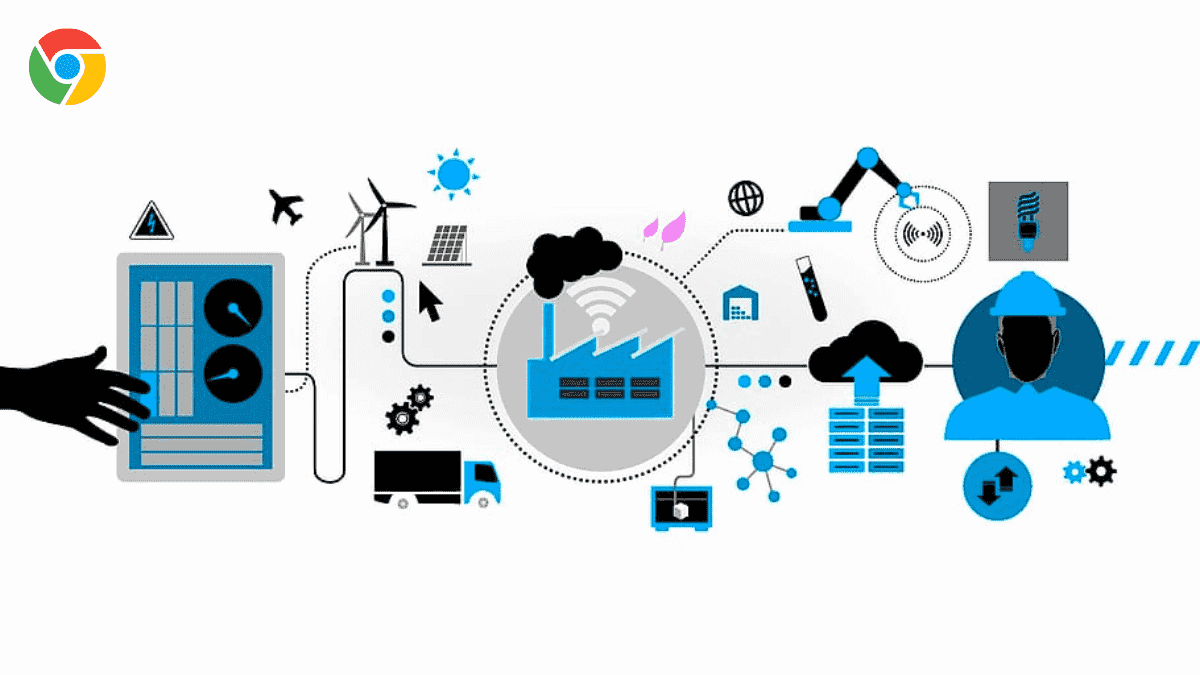
Google Automation and Artificial Intelligence
Automation has turned into a strong power in the time of PCs, changing ventures and testing how individuals live and function. One of the digital giants on the globe, Google, has been instrumental in advancing mechanization breakthroughs, from artificial intelligence (AI) and computerized reasoning to mechanical technology and autonomous frameworks. Here, we’ll investigate how Google is utilizing computerization to upset a few enterprises and what it means for our regular routines.
Google Automation in Search, Marketing, and Analysis
One of the most advanced and widely used robotization tools in the world is presumably Google’s web index. Google continuously customizes and fine-tunes search results using artificial intelligence (AI) algorithms and computations to make sure users receive relevant results.
Google’s automation tools have altered how organizations find their ideal target audiences in the field of advanced advertising. Google Promotions employs AI to automate promotion placement, budget allocation, and target selection, enabling sponsors to achieve better outcomes with less manual labor. Robotization has democratized online advertising, making it accessible to organizations on an equal footing.
Computerization in Server farms and Distributed computing

Google’s cloud computing platform serves as an example of how computerization has changed how executives and consumers register for information. Google Cloud enhances the accessibility, security, and reliability of its services using artificial intelligence-driven computerization. Robotization smooths out and improves the effectiveness of server farm duties such as network enhancement, security checking, and server management.
In addition, Google Cloud provides a wide range of AI and artificial intelligence tools, such as AutoML and simulated intelligence Stages, that allow businesses to employ computers for information analysis, vision demonstration, and bespoke artificial intelligence setups. These capabilities provide associations with the ability to make informed decisions and get the upper hand.
Autonomous Driving Architectures: Insights of Machine Learning and Deep Learning Algorithms

The parent company of Google, Alphabet, is a pioneer in the fields of independent frameworks and mechanical technology. A letter-in-order auxiliary called Waymo is at the forefront of self-driving technology. For exploration and decision-making in the field, Waymo’s autonomous cars rely on cutting-edge computerization frameworks, such as lidar sensors, artificial intelligence computations, and brain organizations.
Innovation in self-driving technology has an impact beyond private transportation. It can alter businesses through such things as integrated operations and delivery, reducing costs, and increasing proficiency. Independent cars might also improve traffic safety by reducing accidents caused by human error.

Google has improved various Machine Learning and Deep Learning Algorithms used in the industry of Autonomous Driving Architectures for different tasks like Motion Planning, Vehicle Localization, Pedestrian Detection, Traffic Sign & signal Detection, Road-marking Detection, Automated Parking, Vehicle Cybersecurity, and Fault Diagnosis, and material planning etc.
Google Automation in Medical Treatment

Google is also doing a good job at computerizing medical procedures. Another Letter Set auxiliary, DeepMind, has made significant progress in bringing artificial intelligence to the medical area. DeepMind’s computations have been used to analyze clinical images, predict patient decline, and distribute clinic assets more effectively. These projects might lessen the expense of clinical consideration while additionally saving lives.
Additionally, the focus of Google Wellbeing is on using computerization to provide long-lasting outcomes. Google Wellbeing aims to promote computer-based intelligence-driven gadgets for early infection identification, personalized therapeutic programs, and other medical service information.
and the rate of clinical exploration quickens Making clinical treatment more productive and open is the objective.
Google Automation in Smart Homes and IoT

Google’s efforts to automate have had a significant impact on how we live our daily lives through innovative home appliances and the Internet of Things (IoT). Google’s imaginative speakers, for example, in Google Endlessly Home, utilize discourse acknowledgment fueled by computerized reasoning and regular language handling to oversee numerous parts of our homes. These devices improve comfort and competence by adjusting indoor conditions, playing music, and answering queries.
Google is creating a connected world where computerization seamlessly combines with our homes through partnerships with other IoT companies. Smart cameras, for instance, can identify and alert property owners to possible security risks, while clever robots may detect possible security threats and alert property owners, while clever machines improve energy efficiency.
Google Automation Influence on Societal Positions

Google’s mechanization and automation initiatives have a number of benefits, but they also raise concerns about how they may affect businesses and individuals. Certain occupations might become outdated because of motorization and AI, especially those that include dreary errands that can be robotized In any event, it also lays out new opportunities for careers in disciplines like the development of artificial intelligence, information science, and mechanical technology.
The workforce should be equipped with the skills needed for the jobs with the creativity of the future by investing in education and reskilling initiatives as part of society’s effort to adapt to these advancements as part of productivity not challenge. To ensure that these developments are beneficial to everyone, politicians and organizations should also consider the moral implications of mechanization and understand the limitation that AI is a tool, not a solution, such as information protection and computer-based intelligence predisposition.
CONCLUSION
Automation, fueled by Google’s innovative developments, has become a crucial component of our lives, changing endeavors, improving effectiveness, and enhancing our sense of fulfillment. Google AI is changing the vision of public, private, and government sector processes and improving productivity while eliminating the chances of human errors.
Benefits of robotic process automation
Industrial automation solutions
Marketing automation software
Robotic process automation tools
Robotic process automation comparison
Business automation software comparison
Warehouse automation systems
Building automation systems
Automation tools for business
Process automation tools comparison
IT automation solutions
Office automation software
Test automation services for mobile applications
Benefits of process automation
Advantages of marketing automation
Cloud-based automation tools
Automation testing services for web applications
IT process automation tools
Advantages of automation testing
Test automation interview questions




























